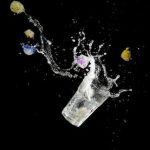What are the effect of energy drink: Whether it’s before a long day at the workplace, a hard workout, or an all-night examine session, many of us flip to energy drinks after we want a little boost. Energy drinks are a multi-billion greenback trade. If their popularity is any indication of their effectiveness, they seem like working. But are these drinks doing us extra hurt than good?
Despite how popular energy drinks are, the time period “healthy energy drink” is still an oxymoron. According to the Substance Abuse and Mental Health Services Administration (SAMHSA), more than 20,000 emergency room visits in the United States in 2011 concerned energy drinks. More than half of these visits had been due to energy drinks alone. The different instances concerned people mixing alcohol or different stimulants with energy drinks. According to the Center for Science in Public Interest, energy drinks have been linked to 34 deaths since 2004. Most of these had been from people taking 5-Hour Energy.
Table of Contents
Caffeine
Most energy drinks pack a critical caffeine punch. Caffeine is a central nervous system stimulant. It offers you energy and makes you extra alert. The common 8-ounce cup of coffee contains about 95–200 milligrams of caffeine, in response to the Mayo Clinic. In comparability, a 2-ounce 5-Hour Energy shot contains about the same amount of caffeine (200–207 mg).
Caffeine is relatively secure in small doses, such as in a cup of coffee or tea. But it may be harmful in large doses (over 400 mg), in response to an info sheet revealed by the University of California, Davis. An overdose of caffeine can cause signs such as:
- irregular or fast heartbeat
- hassle breathing
- diarrhea
- fever
- convulsions
Excessive caffeine consumption can cause health points for:
- people unaware of a sensitivity to caffeine
- people who’ve points with blood pressure or heart rate regulation
- pregnant ladies
Children and teenagers
Energy drinks might be interesting to children and teenagers as a result of they are accessible at native stores and are authorized for all ages. According to the Centers for Disease Control and PreventionTrusted Source, 50 p.c of teenagers say they devour energy drinks, and 75 p.c of college districts don’t have a coverage regulating their sale on campus. In basic, regulation of energy drinks in the United States is lax. However, there’s a motion calling for stricter regulation and content material labeling, in addition to the addition of health warnings.
Children and teenagers are particularly weak to energy drinks as their our bodies typically aren’t used to caffeine. One studyTrusted Source found that caffeine intoxication, or drinking too much caffeine, results in caffeine habit and potential withdrawal. The examine concludes that energy drinks could also be a gateway to different varieties of drug dependence.
Sneaky sweeteners and stimulants
Usually there are different stimulants in addition to caffeine in energy drinks. Additives such as guarana and ginseng are common. These can amplify the drink’s energy boost and also the adverse results of caffeine.
Energy drinks usually contain large amounts of sugar to help their energy-boosting results. A single serving of an energy drink can have more than 30 grams of sugar, in response to scientists at UC Davis. Sugary drinks have been linked to weight problems, high blood pressure, and high cholesterol, in response to the American Heart AssociationTrusted Source. This studyTrusted Source also shows that added sugar consumption will increase your risk of developing cardiovascular disease.
Unusual ingredients
The UC Davis info sheet lists a number of ingredients that might not be acquainted to you. Many of these ingredients are new to business products, so not much analysis has been done on them. Despite claims made by producers, their results are unknown. Currently, there isn’t enough knowledge to ascertain the safety of these ingredients:
- carnitine
- glucuronolactone
- inositol
- panax ginseng
- super citrimax
- taurine
Alcohol
In 2010, the Food and Drug Administration banned the sale of energy drinks that contain alcohol. It declared them to be unsafe. This studyTrusted Source shows how mixing alcohol and energy drinks can result in drinking too much alcohol. Energy drinks keep people awake longer. This can increase the amount of alcohol people drink. High alcohol consumption is linked to sexual assault, driving under the affect, and different dangerous behaviors.
Alternatives
It’s secure to have caffeine in moderation. But if a cup of joe a day doesn’t offer you a big enough boost, try some of these options:
- Drink water: Staying hydrated helps keep your body running, in response to this studyTrusted Source. Drink a glass of water while you get up, with meals, and earlier than, during, and after exercises.
- Eat protein and carbohydrates: According to the American Heart AssociationTrusted Source, they are nice fuel for a workout. Carbohydrates present your muscle tissue with energy, while protein helps construct them. Try chocolate milk, fruit, and a boiled egg, or a peanut butter and banana smoothie.
- Take vitamins: Naturally occurring vitamins and minerals, such as magnesium, assist your body produce energy. A vitamin or mineral deficiency might cause fatigue. If you are feeling such as you at all times want an energy boost, discuss to your doctor about having a nutritional evaluation or including a vitamin supplement to your diet. You can also add extra vitamin- and mineral-rich foods to your diet, such as fresh fruits, vegetables, nuts, and yogurt.
- Be energetic: When you exercise, your serotonin and endorphin levels increase shortly after, which helps you are feeling better. Also, those that exercise regularly usually have extra energy.
Outlook (What are the effect of energy drink)
While energy drinks might seem to be a fast repair for fatigue, the short- and long-term results of drinking them outweigh the benefits. Energy drinks have been linked to weight problems, high blood pressure, and cardiovascular points. A single energy drink can contain extra sugar and caffeine than you should have in a day. Plus, many energy drinks produce other ingredients that haven’t been examined effectively enough to know their results on the body. There are many options to energy drinks that provide a healthy energy boost and gained’t allow you to down.
Pros of Energy Drinks:
1. Instant Zing: Energy drinks are like a turbo boost for your day—they kickstart your engine faster than a coffee jolt! Bam! Ready to conquer!
2. Alertness Amplifier: Need to fight off the yawns? Energy drinks wave a flag of alertness, keeping you as sharp as a superhero’s costume. No snoozing on their watch!
3. Workout Warrior: They’re the gym buddy cheering you on! Energy drinks might rev up your workout, making you feel like a gym legend. Time to lift those weights like a superhero!
4. On-the-Go Potion: Rushing like a headless chicken? Energy drinks are like the emergency siren in your bag—ready for action whenever, wherever! They’re the rescue team for your energy emergency!
5. Flavor Fiesta: Let’s admit it, some taste like rainbow unicorn sparkles! They offer a flavor party in your mouth, making sipping an adventure. Who knew energy could taste this good?
- Read more: Can I lose 10 pounds in one month?
- Read more: Is it bad to want to lose weight fast?
- Read more: 9 health benefits of vegetables legumes and beans
- Read more: 6 Best candy for weight loss – Science based
Cons of Energy Drinks:
1. Crash Landing: The energy high is a rollercoaster ride—what goes up, must come down! Energy drinks might leave you crashing like a tired sloth afterward. From superhero to sleepyhead in no time!
2. Jitter Bug Invasion: They sometimes bring unwanted guests—jitters! Your body might feel like it’s doing a shaky dance routine. Not the smooth moves you bargained for!
3. Sleep Stealer: Sipping energy drinks close to bedtime? They might hijack your beauty sleep, making counting sheep feel like a superhero mission. The quest for shut-eye becomes an epic battle!
4. Tummy Troubles: Some folks get a grumbling tummy after sipping on these elixirs. It’s like your stomach staging a protest—no more energy drinks, please!
5. Health Hazards: Overdoing it? Energy drinks can raise eyebrows on your health report, like the villain plotting against your well-being. They’re the sneaky troublemakers in your health journey!
Remember, energy drinks are like the fun friend at the party—exciting but maybe a tad unpredictable! Moderation is key to keep them on your side without wreaking havoc.
People also ask:
How do energy drinks affect your brain?

Energy drinks are like a DJ for your brain, spinning the tunes of alertness with caffeine and sugar! They’re the hype squad, making your neurons party. Caffeine jumps in, telling your brain, “Wakey-wakey!” It boosts attention and keeps the yawns at bay—hello, laser focus! But too much of this brain rave? It’s like inviting chaos to the dance floor—anxiety and jitters crash the party. Plus, sugar joins in, shouting, “More energy!” But hang on, it’s a sugar rollercoaster; after the rush, comes the slump. Your brain goes from disco ball to a dimly lit room. Moderation is key, folks!
Which energy drink is good for health?

When it comes to healthy energy drinks, it’s like finding a unicorn at the supermarket—a rare gem! Look for ones with less sugar and more natural ingredients. Some sneak in fancy vitamins and minerals, like a superhero costume under their flashy label. But hey, no capes needed! Green tea-based ones often tag along with antioxidants, like a health-conscious sidekick. Avoid those with a sugar explosion, they’re like the party animal that leaves a mess behind. Remember, the healthiest energy drink might be the one where you give your water bottle a high-five—hydration is always a winner!
How much energy drink is safe?

Finding the energy drink sweet spot? It’s like balancing on a tightrope—tricky business! Experts suggest one can a day for most folks, like a permission slip to the energy party. But hang on, your body’s the boss! Some handle more cans like superheroes, while others feel like a shaky squirrel after just a sip. Listen to your body’s SOS signals—if it’s buzzing like a beehive or feeling like a jittery kangaroo, it’s waving a red flag. Maybe swap one can for a dance-off with H2O, it’s the drink that never judges your moves!
